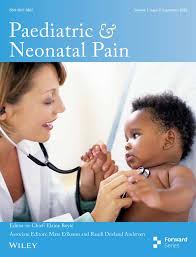
This page contains information about accessing online journals and articles, as well as linked lists of articles and journal titles relevant to paediatric pain.
How to access journals
 Use your ANZCA college ID (or staff username) and password to access library e-resources.
Use your ANZCA college ID (or staff username) and password to access library e-resources.
 Having trouble logging into e-resources? Try emptying your browser cache, closing and reopening your browser and trying again.
Having trouble logging into e-resources? Try emptying your browser cache, closing and reopening your browser and trying again.
 Forgotten your ANZCA password? Try resetting your password using the "Forgot Password?" link and/or messaging the "Technical support" via the college contact form
Forgotten your ANZCA password? Try resetting your password using the "Forgot Password?" link and/or messaging the "Technical support" via the college contact form
 Can't find your article online? Try searching Libraries Worldwide and requesting it via our article request service
Can't find your article online? Try searching Libraries Worldwide and requesting it via our article request service
 Experiencing difficulties, or need help accessing articles or journals? Contact the Library
Experiencing difficulties, or need help accessing articles or journals? Contact the Library
 For further information about searching and accessing journals, see the Journals guide
For further information about searching and accessing journals, see the Journals guide
Can't find it? Try Worldwide!
 Use the discovery service Libraries Worldwide option to search and request content not held by the ANZCA library.
Use the discovery service Libraries Worldwide option to search and request content not held by the ANZCA library.
When searching the library discovery service, some content can only be accessed by expanding your search to Libraries Worldwide. In addition, by searching Libraries Worldwide, you can request any articles/book chapters not held but indexed in Medline.
Simply select the Libraries Worldwide option in the left sidebar or select the Do you want to expand your search to Libraries Worldwide? link in the library discovery service.

 Any articles/chapters unavailable online (or held only in print) can be requested by selecting the item title and using the [ Request article via Library ] button on the Access & Request Options panel.
Any articles/chapters unavailable online (or held only in print) can be requested by selecting the item title and using the [ Request article via Library ] button on the Access & Request Options panel.
Current issues
 Experiencing privacy errors when using View full text links in the discovery service?
Experiencing privacy errors when using View full text links in the discovery service?
This is due to HSTS redirection issues on external servers preventing the user from properly authenticating.
Users with persistent issues should contact the library for further assistance.
Last updated: 17 November 2025

All journals in this collection have articles on paediatric pain. Wherever possible, the guide links to paediatric-focused search results. Where this is not possible, we encourage you to search on this topic for focused results.














Quick links
About ANZCA
Copyright © Australian and New Zealand College of Anaesthetists.